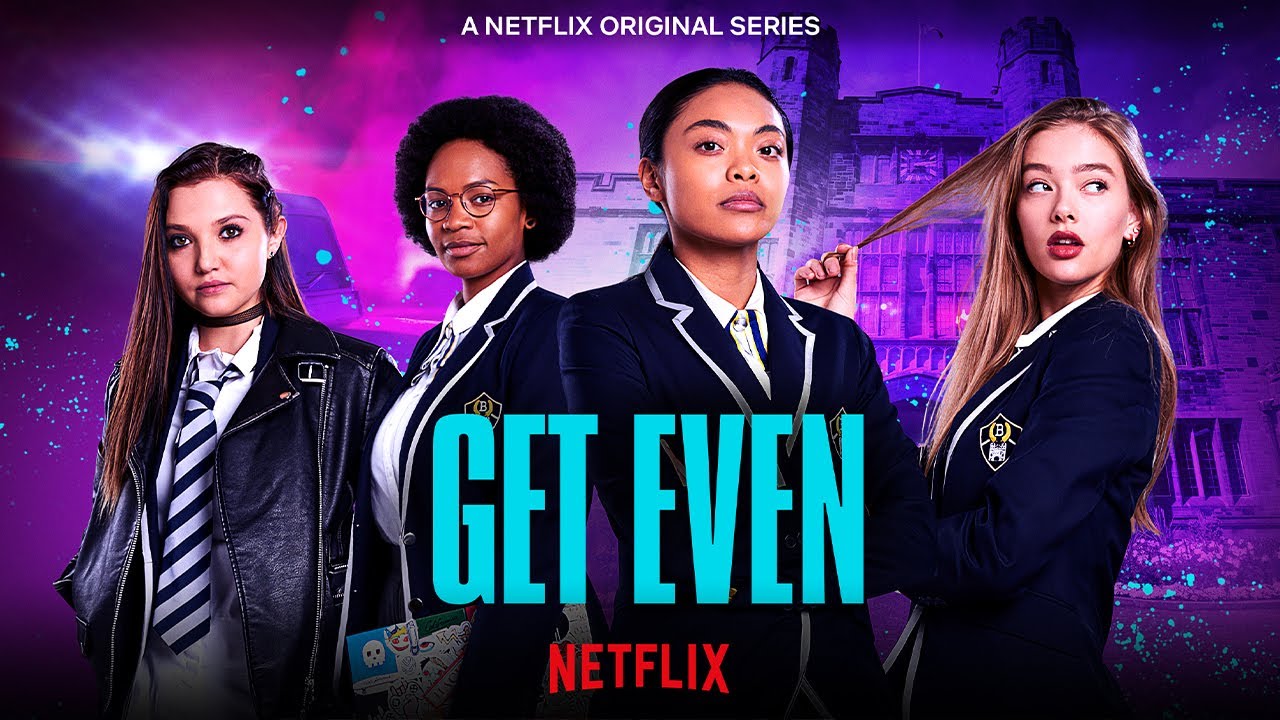The premise of “Get Even” was intriguing: a group of girls from social circles who team up to anonymously expose the dirty secrets of their elite British school. Done under the guise of a vigilante group called DGM (Don’t Get Mad), they valiantly pursue any injustice at their school by publicly revealing damning evidence of misconduct — for instance, by exposing a relationship between an underage girl and the boys’ soccer coach. To me, a fan of teen mysteries, “Get Even” seemed like the perfect combination of “Pretty Little Liars” and “Gossip Girl” with a welcome social justice twist. I particularly enjoyed the diverse cast, which includes two women of color in the four-person DGM group.
Even so, for a thriller series with a whodunit murder mystery, “Get Even” was boring to watch. Despite its dark tone and high-stakes situations, I found myself checking Instagram during most of my viewing time. And while action is not the hallmark of a good television show, for a program marketing itself as a thriller some action is required. The show often tries to create tense scenes, but it doesn’t work because the world of the show is ill-defined. Because the audience is not connected to the characters or the setting, they don’t care what happens to them — at least I didn’t.
The first episode begins with DGM’s already-established presence at the school, exposing the boys’ soccer coach for his rampant bullying. It then quickly moves on to the next scheme and fails to connect its vastly different main characters. It isn’t until the eighth episode of the 10-episode first season that we get a half-baked explanation of how the group formed during a detention-turned bonding session. In addition, we don’t get a defining incident that formed the group, settling for many small infractions against the characters that unified them.
The only character with a compelling story is Margot (played by Bethany Antonia). Margot is an American student who transferred into the school later than most of the characters, but before the first episode. In the beginning, she seemed to fit in with the popular crowd — but after her diary was stolen and read aloud in the cafeteria she stopped talking to everyone, going from a social butterfly to an extreme introvert. To be sure, her arc of learning to trust people again and all the baggage it brings is legitimately worth watching. I particularly enjoyed watching her budding friendship with Olivia (played by Jessica Alexander), a fellow DGM member who has a similar fall from grace. The actresses have legitimate chemistry, and their friendship is a plot point earned throughout the show, in contrast to most of the show’s givens.
The rest of the characters are total stereotypes — like Kitty (played by Kim Wei), the hard-working Asian girl who hopes the popular boy will notice her; Bree (played by Mia McKenna-Bruce), the disillusioned politician’s daughter; John (played by Isaac Rouse), the boy in love with his girl best friend; or Logan (played by Kit Clarke), the one who is hiding something. The show brings little new to the table and simultaneously fails to adequately deliver on old tropes. The show has an overall mood of inconsequentiality and ultimately fails a great premise.
Seeing as my teen-drama-addicted self will probably watch season two the moment it comes out, I truly hope the show can find its voice and improve itself. By further exploring all of its characters’ unique motivations, it can make the action in the show worthwhile. By raising the stakes and developing its characters, “Get Even” can get good.
Contact Gil Abend-David at gilalexandraa ‘at’ gmail.com.
